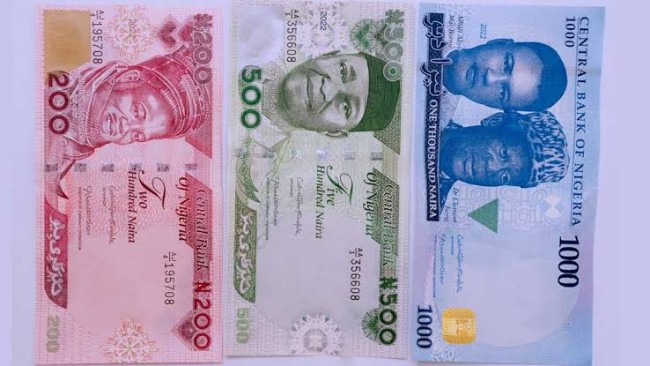Business
‘Colour does not tackle inflation’, Rewane disagrees with CBN on benefit of policies

Bismarck Rewane, managing director and CEO of Financial Directives has expressed a different opinion on the impact of cash withdrawal limit and new naira notes.
Speaking on AriseTV, the renowned economists described claims by CBN that the policies would reduce inflation, improve the value of the naira and reduce vote buying as counterfactual to economics.
He noted that inflation does not respond to the change in the color of any currency but to its capacity to enable the exchange of goods and services.
Rewane said: “The last time I checked the value of a currency was not appreciated because of the colour if not the Lebanese currency, the Egyptian currency would have been the most valuable currency.
“They are very colourful. No team wins a game because of the colour of the jersey. But people win a game because of the capacity. Between France and Argentina, the colour of their jerseys is going to be blueish but that won’t determine. It depends on the ferocity and the tenacity of Mbappe on one hand and Lionel Messi on the other hand.”
The Central Bank of Nigeria (CBN) had in December directed that over-the-counter withdrawals by individuals and corporate entities are not to exceed N100,000 and N500,000 respectively, per week. The apex bank also directed that only N200 and lower denominations should be loaded into banks’ Automated Teller Machines (ATMs) and the minimum cash withdrawal per week via ATM should be N100,000 per week subject to a maximum of N20,000 per day. The policy kicks off on 9 January
While the policy has been widely criticised including the Senate urging the CBN to review the limit, Godwin Emefiele, Governor of the Central Bank insists there is no going back given that the President has expressed his support for the policy. Emefiele also denied the policy was politically motivated but that it was for the good of the economy.
However Rewane disagrees that the policy would be responsible for any change in the current economic situation of the country.
Read also:CBN’s cash withdrawal policy’ll frustrate business in north –ACF
According to him, all cash is money but not all money is cash. The total cash in circulation which is in the banking system and outside the banking system is N3 trillion while the money supply is N50 trillion.
Rewane said: “This means that cash is about 6 percent of the total money supply. He insists that should the CBN succeed in mopping up N2 trillion of the total cash in circulation it is still 4 percent of the total money supply. Whereas the federal government borrowing from the CBN is at N23 trillion.
“So if you take the N2 trillion away – assuming they got the N2 trillion from people – you still have N23 trillion of government debt to the CBN which is a worse enemy to inflation. What happens to the government debt?”
He also defined money as what money can buy and not legal tender.
“I am interested in how much the currency can buy. If the bag of rice is N56,000 whether the currency is red, blue, or yellow and I have a currency that will give me a bag of rice at N35,000 I will go for that currency. The rice seller won’t sell it because of the colour of the currency. We need to understand things from a proper perspective. As a matter of fact, the more money you horde the lower the price because inflation is defined as money chasing goods. So if I keep my money and I do not give it to anybody it will not push up prices. So it is counterfactual it doesn’t make. It falls flat in the face of economics,” he said.
Join the conversation
Support Ripples Nigeria, hold up solutions journalism
Balanced, fearless journalism driven by data comes at huge financial costs.
As a media platform, we hold leadership accountable and will not trade the right to press freedom and free speech for a piece of cake.
If you like what we do, and are ready to uphold solutions journalism, kindly donate to the Ripples Nigeria cause.
Your support would help to ensure that citizens and institutions continue to have free access to credible and reliable information for societal development.






















